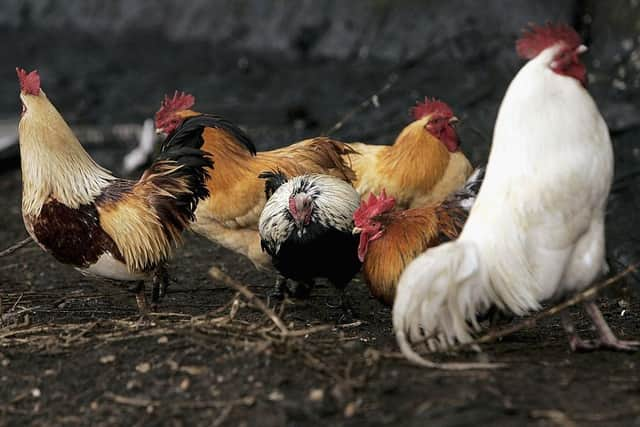Avian flu advice issued after dead wild birds reported in Amble, Boulmer and Cresswell
and live on Freeview channel 276
There have been a number of recent reports of dead wild birds in several areas of Northumberland – including Amble, Boulmer, Cresswell and Haydon Bridge.
The cause of death of some of the birds has been confirmed by the Department for Environment, Food and Rural Affairs (DEFRA) as avian flu.
Advertisement
Hide AdAdvertisement
Hide AdTherefore, Northumberland County Council’s public protection team is once again issuing a reminder to the public not to touch or pick up any dead or visibly sick birds.


Although the risk to public health is very low, it is a highly contagious virus that can rapidly spread between wild birds and commercial flocks – with devastating consequences.
If a member of the public comes across a dead wild bird, they are asked to report it to DEFRA on 03459 335577 (option 7).
DEFRA will investigate and decide if they need to collect samples for recording, testing and analysis. Providing good location information for a dead or diseased bird is particularly important and location apps such as ‘what3words’ references can be very helpful.
Advertisement
Hide AdAdvertisement
Hide AdTo report dead wild birds for removal on public land, call the county council’s customer services team on 0345 600 6400. The local authority will respond to arrange collection from public land or, where appropriate, its teams will inform the landowner to arrange removal when dead birds are located on private land.
Landowners should also seek advice about their obligation to arrange compliant collection and disposal of dead birds affected by avian flu. For more information, go to nland.cc/bird
Coun Gordon Stewart, cabinet member for looking after our communities, said: “Unfortunately, cases of avian flu in wild birds continue to be reported in the county and the risk to captive flocks and poultry businesses remains.
“While the majority of cases of avian flu have been in coastal areas, lately there have been reports of dead wild birds inland on water courses at Haydon Bridge.
Advertisement
Hide AdAdvertisement
Hide Ad“It is really important, now more than ever, that all bird keepers maintain strict biosecurity on their premises to help keep their flocks safe and remain vigilant for any signs of disease. If you suspect an outbreak in your flock, please contact DEFRA immediately.”
“On a reassuring note, Public Health England has said the risk to the public is extremely low and that it is safe to continue eating properly cooked poultry and eggs, if you choose to do so, as normal.”
If you keep captive birds such as poultry, including as pets, and you suspect avian influenza, you must report this to DEFRA on 0300 0200301.
Full guidance covering biosecurity requirements and other useful information about avian influenza, including the main clinical signs to look out for, can be found at www.gov.uk/guidance/avian-influenza-bird-flu
Bird keepers are encouraged to familiarise themselves with these details.